What Is Quality Score? Boost Your Google Ads Performance
- Chase McGowan

- Oct 15, 2025
- 13 min read
Running a Google Ads campaign without understanding your Quality Score is like trying to improve your grades without ever seeing your report card. You'd be throwing money at tutors and textbooks but have no idea which subjects actually need the work.
Unfortunately, this is exactly how many businesses—and their big, impersonal agencies—approach Google Ads. They just keep pouring money in, focusing on spending the budget rather than making it work smarter. This is where my approach as a dedicated, individual consultant makes a world of difference.
Your Google Ads Report Card Explained
This is where mastering what is quality score becomes non-negotiable. It’s not some vanity metric you can ignore; it’s a direct lever on your ad spend and profitability. As a specialist, my job isn't just to manage your ad budget—it's to squeeze every last drop of performance out of it. A high Quality Score is how we do that.
It's the tool that turns a blind ad expense into a sharp, performance-driven investment. It’s the difference between wasting cash with a bloated agency and running a campaign that actually makes you money with an expert who cares about your results.
So, What Is Quality Score, Really?
At its core, Google Ads Quality Score is a simple diagnostic tool Google uses to rate the overall quality and relevance of your ads on a scale of 1 to 10. Think of it as Google’s way of telling you whether you're actually helping their users find what they're looking for.
A high score means you’re on the right track, delivering relevant solutions. Google rewards this with lower ad costs and better placements. A low score, on the other hand, is a bright red flag that your ads and landing pages are completely misaligned with what people are searching for.
The score itself is a mash-up of three core components:
Expected Click-Through Rate (CTR): How likely is someone to click your ad when it's shown?
Ad Relevance: Does your ad actually match the intent behind the searcher's keyword?
Landing Page Experience: Once someone clicks, does your page give them what they need quickly and easily?
Google calculates your score by stacking your performance in these areas against all the other advertisers bidding on the same keywords. You can get the official rundown directly from Google's own guide on Quality Score and its components.
To simplify this, let's look at a quick reference table.
Quality Score at a Glance
Concept | What It Means for Your Ads |
|---|---|
A Diagnostic Score (1-10) | This is your ad campaign's "report card," grading how well you're meeting user needs. A higher score means Google sees you as a quality advertiser. |
Relevance is Key | The score directly reflects how closely your keywords, ad copy, and landing page are aligned with a user's search query. |
Financial Impact | Higher scores lead to lower cost-per-click (CPC) and better ad positions. Lower scores mean you pay more for less visibility. |
Competitive Benchmark | Your score is relative. It's measured against other advertisers competing for the same keywords, pushing you to be better than them. |
Ultimately, Quality Score is Google's mechanism for rewarding advertisers who create a great user experience and penalizing those who don't.
This infographic helps drive the point home, visualizing Quality Score as the central pillar of a healthy campaign.
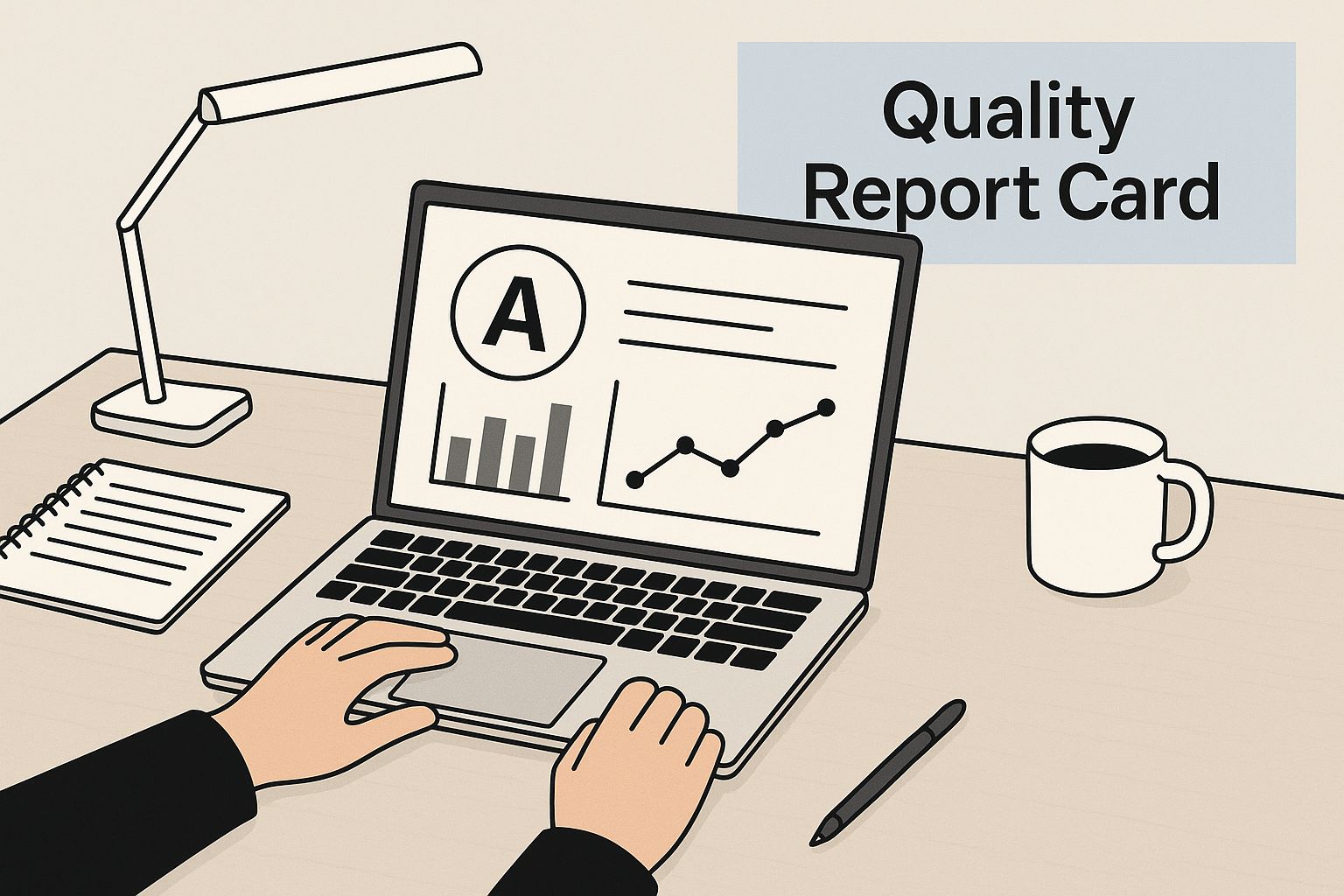
A generic agency might see a 4/10 score on a critical keyword and just keep bidding up. A dedicated specialist sees a massive opportunity. Improving that score is how we stop overpaying for clicks and start outranking competitors who have much deeper pockets.
It’s about being smarter, not just spending more. And that meticulous, hands-on optimization is exactly what separates an expert-led strategy from a bloated, one-size-fits-all agency approach.
The Three Pillars That Define Your Quality Score
To really get what Quality Score is, you have to look past the simple 1-10 number and see what’s holding it up: three core components, or pillars. Google isn't just pulling this score out of thin air; it's a calculated grade based on how well you're serving its users at every single step of their search.
Getting these pillars right is where a hands-on expert makes all the difference.
Bloated agencies often slap the same generic ad templates across all their accounts, completely failing to give each pillar the detailed attention it deserves. As an individual consultant, my entire focus is on meticulously refining these elements until they work in perfect harmony. That's how you create a real, sustainable advantage for your campaigns.
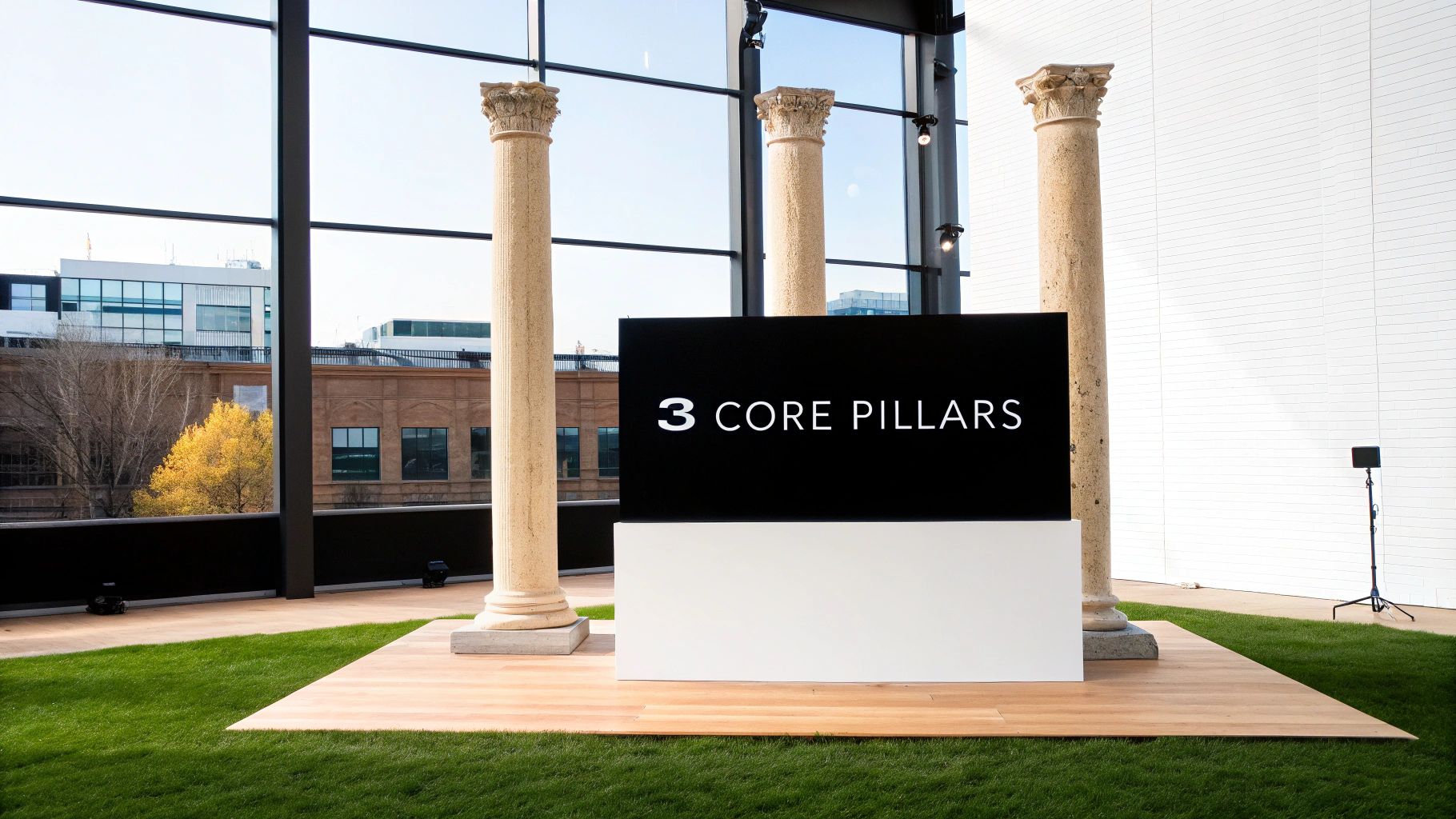
Pillar 1: Expected Click-Through Rate (CTR)
The first pillar is Expected Click-Through Rate (CTR). Now, this isn't your actual CTR. It's Google's prediction of how likely someone is to click your ad when it shows up for a specific keyword. Think of it as a forward-looking guess based on your past performance and how your ad stacks up against the competition.
Here’s a simple analogy: if two coffee shops are next to each other, but one consistently has a line out the door, you’d naturally expect the next person walking by is more likely to go there. Google sees your ads the same way. A history of compelling, clickable ads tells Google you're a good bet for future searches.
If you want to dig deeper into what makes a CTR really pop, check out our guide on what is a good click-through rate for Google Ads.
Pillar 2: Ad Relevance
Next up is Ad Relevance. This one is all about how closely your ad's message matches what the user actually searched for. It’s the promise you make to the searcher.
If someone types in "emergency plumber," an ad headline that screams "24/7 Plumbing Repair" is spot-on. An ad that just vaguely mentions "Home Services"? Not so much. That's a disconnect.
This is exactly where many big agencies drop the ball. They rely on broad, generic ad copy that fails to connect with specific user intent. As a dedicated consultant, I ensure your ad copy acts as a perfect mirror to the search query, creating that seamless connection that practically begs for a click.
A low Ad Relevance score is like a salesperson ignoring a customer's specific question and just reciting a generic company slogan. It breaks trust instantly and pushes potential customers away.
Pillar 3: Landing Page Experience
Finally, we have the Landing Page Experience. This pillar looks at what happens after the click. It answers one simple question: does your landing page actually deliver on the promise your ad made?
Google is looking at things like relevance, how easy the page is to navigate, transparency, and overall trustworthiness. A slow, confusing, or misleading page will absolutely demolish your Quality Score, no matter how brilliant your ad is.
The key here is to create high quality content and a user experience that feels effortless. Your page needs to directly address the user’s search, be mobile-friendly, and load in a flash. An individual expert meticulously aligns the landing page content with the ad copy, making sure the user’s journey is smooth and rewarding from start to finish.
How Quality Score Directly Impacts Your Ad Spend and Rank
This is where the rubber meets the road. Understanding what Quality Score is stops being a theoretical exercise and starts hitting your bank account—hard.
The impact is direct and powerful. It’s also the biggest blind spot for businesses stuck with bloated, overworked agencies. They’ll tell you to just bid higher, but the real win, the expert move, is improving your score.
Google decides where your ad shows up using a simple but critical formula called Ad Rank.
Your Ad Rank = (Your Maximum CPC Bid) x (Your Quality Score)
This formula is everything. It proves you don't need the biggest budget to win the top ad spot; you just need a better Quality Score. A high score acts as a multiplier, giving your bid way more muscle. A low score does the opposite, forcing you to overpay just to stay in the game.
The Quality Score Tax Versus The Quality Score Discount
Think of it this way: a low Quality Score is a "tax" Google slaps on every single click. You're getting penalized for delivering a subpar user experience.
On the flip side, a high Quality Score is a "discount." Google literally rewards your relevance and quality with lower costs and better visibility.
This is the financial lever a seasoned consultant pulls that large agencies often ignore. They’re built to manage spend, not to meticulously optimize every detail to reduce that spend. My entire focus is on earning you that discount from Google, stretching your budget further, and driving a much higher return.
And the financial upside is no joke. Industry data shows that bumping a keyword's Quality Score by just one point can slash your average cost-per-click (CPC) by up to 16%. You can dive deeper into these Quality Score findings on Spiffy.co to see how tiny improvements stack up into major savings.
How Quality Score Plays Out In The Real World
Let's make this tangible.
Imagine two businesses, both bidding $2.00 for the same keyword. One is with a hands-off agency and has a dismal Quality Score. The other works with a dedicated specialist who lives and breathes optimization.
The Financial Impact of Your Quality Score
The table below shows how two advertisers with the same bid can end up in wildly different positions, with drastically different costs, all because of their Quality Score.
Advertiser | CPC Bid | Quality Score | Ad Rank Score | Result |
|---|---|---|---|---|
Business A (Agency) | $2.00 | 3/10 | 6 (2 x 3) | Low Ad Rank – Appears far down the page, if at all, despite bidding the same. |
Business B (Consultant) | $2.00 | 9/10 | 18 (2 x 9) | High Ad Rank – Wins a top ad position for the exact same bid, likely paying less per click. |
The difference is stark.
Business B, with its expert-driven high Quality Score, gets three times the Ad Rank of Business A for the exact same bid. They don't just secure a better ad position; they'll almost certainly pay a lower actual CPC than their competitor.
This is how you win at Google Ads without just throwing more money at the problem. It's the core advantage of working with a focused expert over an over-priced agency.
Actionable Strategies to Improve Your Quality Score
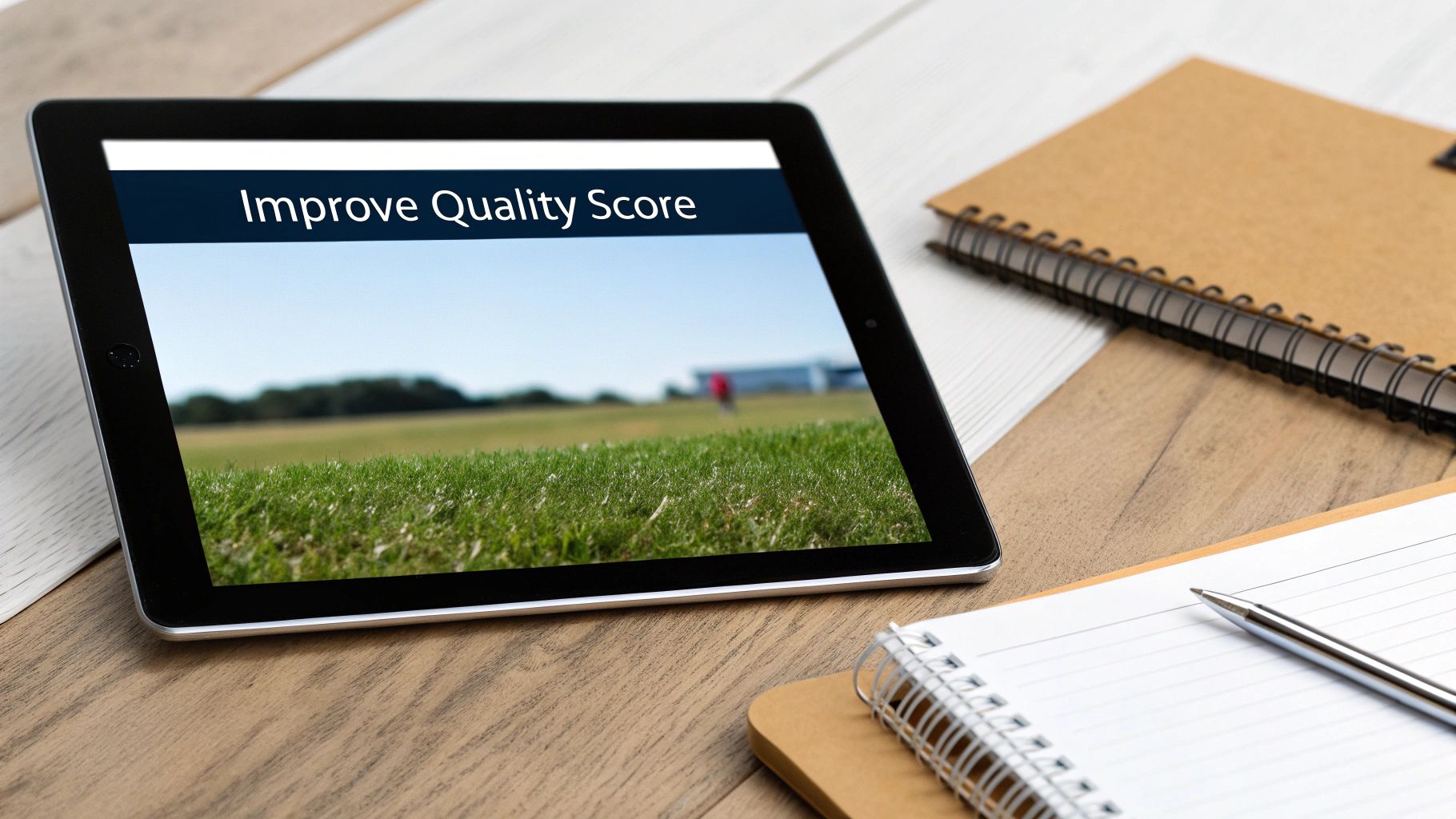
Knowing the theory behind what is quality score is one thing. Turning that knowledge into a higher score and a lower ad spend is a whole different ball game. This is where the meticulous, hands-on work of an experienced consultant leaves the templated, one-size-fits-all approach of a large agency in the dust.
Improving your score isn’t about flipping a switch. It’s a deliberate process of refining every single element of your campaign.
Let's get out of the textbook and into the trenches. These aren’t generic tips you’ll find on any old blog. These are the core strategies I use to systematically dismantle low-scoring campaigns and rebuild them into high-performance machines that save my clients money and actually drive results.
Create Hyper-Relevant Ad Groups
The absolute foundation of a high Quality Score is relevance, and relevance begins with your account structure. So many bloated agencies make the rookie mistake of cramming dozens of loosely related keywords into one massive ad group. That kind of laziness is a one-way ticket to a low score.
Think about it. A user searches for "men's leather running shoes." They see a generic ad for a "Men's Footwear Sale." Is the connection there? Barely. Your ad relevance score tanks, your expected CTR nose-dives, and your Quality Score takes a direct hit.
The right way to do it is by building small, tightly-themed ad groups. Each group should only have a handful of extremely similar keywords. This allows you to write laser-focused ad copy that speaks directly to that specific search.
This methodical structure creates an almost perfect match between the keyword, the ad, and what the user is looking for. It’s the first major step toward a higher Quality Score. Sure, it takes more upfront work than an agency is willing to do, but the payoff in performance is massive.
Craft Compelling Ad Copy That Demands a Click
Once your ad groups are organized, it's time to write ad copy that actually connects with people. This is your shot to boost your expected CTR—the first pillar of your score. Generic, uninspired ads are just background noise. They get ignored, which tells Google your ad isn't a good answer to the search.
An individual consultant obsesses over ad copy. We test different headlines, we play with descriptions, and we find what works. We don't just state what you sell; we get inside the user's head, address their pain points, and frame your offer as the perfect solution.
Here are a few principles for writing stronger ad copy:
Mirror the Keyword: Stick the user's search term right in your headline. It's an instant signal of relevance.
Highlight a Unique Benefit: What makes you different? Free shipping? 24/7 support? A lifetime warranty? Make it impossible to miss.
Use a Strong Call to Action (CTA): Tell people exactly what to do next. "Shop Now," "Get a Free Quote," or "Download Your Guide" are clear and they work.
The difference between a 3/10 and a 7/10 Quality Score often boils down to the words you choose. A specialist sweats these details because they know every single character counts toward boosting your CTR and slashing your costs.
Optimize Your Landing Page Experience
The final, and arguably most critical, piece of the puzzle is perfecting what happens after the click. You can have the best ad in the world, but if it leads to a slow, confusing, or irrelevant landing page, your Quality Score is toast. This is the "Landing Page Experience" pillar, and it’s where so many campaigns fall apart.
Your landing page has to deliver on the promise your ad made. If your ad promoted a 20% discount, that offer needs to be front and center on the page. No excuses.
Google is putting more and more weight on user navigation and clarity. A cluttered page with hidden fees or a confusing next step will get penalized. Your page needs to be fast, mobile-friendly, and dead simple to navigate. To pull this off, you have to understand how to build high-converting landing pages that win by matching your content to what the user wants and making it easy for them to convert.
For more advanced optimization, knowing how to use AI to launch ads can uncover powerful ways to refine your targeting and messaging. A dedicated consultant explores every tool available to gain an edge, ensuring your landing pages don’t just convert, but actively contribute to a better, more cost-effective campaign.
Why Agencies Fail at Quality Score Optimization
Here’s a hard truth most business owners learn the hard way: that big, impressive agency you hired is probably not built to obsess over your Quality Score. It’s not that they’re bad people; it’s that their entire business model often works against the granular, painstaking work required for true optimization.
It’s a structural flaw, and it costs their clients a fortune.
Your account gets handed to a junior manager who's drowning in a dozen other client accounts. How can they possibly find the time to dive deep into your ad copy, hunt for niche keyword opportunities, or run rigorous A/B tests on your landing pages? The short answer: they can't.
Their focus inevitably shifts from your performance to their billable hours. They fall back on templates and one-size-fits-all strategies because it's efficient for them, not because it’s effective for you. This approach completely misses the nuance that a high Quality Score demands.
The Specialist Advantage
This is where a dedicated consultant has a massive, almost unfair, advantage. My success is directly and relentlessly tied to your success. I’m not managing a bloated client roster or spending my day in internal meetings. My focus is singular: wringing every last drop of performance out of your ad spend.
A low Quality Score is a symptom of a neglected account. Agencies often treat it as a minor metric, but a dedicated consultant sees it for what it is: the single biggest lever for boosting your profitability.
Instead of just throwing more of your budget at a problem, a specialist gets their hands dirty. We become obsessed with the details that agencies are forced to gloss over.
Deep Keyword Analysis: We don't just find keywords; we dissect the intent behind them. This ensures the ads we write are a perfect, almost psychic, match for what the searcher is actually looking for.
Continuous Ad Copy Testing: We are constantly writing, testing, and iterating on ad variations. We hunt for the exact turn of phrase or call to action that grabs your audience and skyrockets your click-through rate.
Landing Page Collaboration: We work with you to make sure your landing pages aren't just an afterthought. They need to be a seamless continuation of the ad's promise, turning that click into a genuine conversion.
This hands-on, meticulous process is something a large agency's structure simply cannot replicate at scale. They’re built for volume, not for the specialized craft of Quality Score mastery. The financial difference between these two models is staggering, which is a key reason why hiring a senior Google Ads consultant beats working with a bloated PPC agency. An expert’s focused effort leads directly to better scores, lower ad costs, and a far healthier return on your investment.
Your Top Quality Score Questions, Answered
Getting into the weeds of what is Quality Score can feel a bit overwhelming, but these are the details that separate a winning account from a losing one. This is the kind of stuff a seasoned consultant obsesses over, moving beyond the generic advice you’d get from an overworked agency.
Let's clear up a few of the most common questions I hear.
How Long Does It Take to Improve My Quality Score?
This is the big one. While a sharp ad copy rewrite might give you some quick feedback, seeing a real, stable jump in your Quality Score usually takes a few weeks to a month. Google needs time to gather enough fresh data to confidently say, "Yep, this is better."
This isn't an overnight flip of a switch. It takes consistent, patient work—the kind of focused effort that's often missing when your account is just one of fifty on an agency's plate. A real expert plays the long game, making steady, deliberate improvements that actually stick.
Is a 10 Out of 10 Quality Score Even Possible?
Yes, getting a perfect 10/10 Quality Score is definitely achievable. But it shouldn't become an unhealthy obsession. A perfect score is great, but chasing it across every single keyword in your account is a recipe for madness.
A much smarter goal? Aim for a 7 or higher on your most important, high-volume keywords. Hitting that range puts you in a fantastic position, unlocking significant cost-per-click discounts and better ad positions from Google. A specialist hones in on lifting your most valuable keywords into this tier, making sure your budget works harder where it counts.
Don't chase perfection at the expense of real progress. A steady 8/10 on a keyword that drives sales is infinitely more valuable than a fleeting 10/10 on one that gets almost no traffic.
Does Quality Score Affect My Organic Search Rankings?
Simple answer: no. Your Google Ads Quality Score has zero direct impact on your website's organic SEO rankings. Google keeps a hard line between its paid platform and its organic search algorithm. They're two completely different beasts.
That said, there's often a nice indirect benefit. The work you put into improving your landing page experience for ads—like boosting site speed, clarifying navigation, and writing killer content—are all things that Google's organic algorithm loves, too. When a specialist helps you build a better user experience for your paid traffic, it naturally lifts your organic presence over time.
Optimizing your Quality Score is a hands-on process. It requires expert attention, not a generic, set-it-and-forget-it agency template. At Come Together Media LLC, I provide the dedicated, one-on-one consulting needed to turn your ad spend into a powerful growth engine. Book a free consultation today and let's unlock your campaign's true potential.




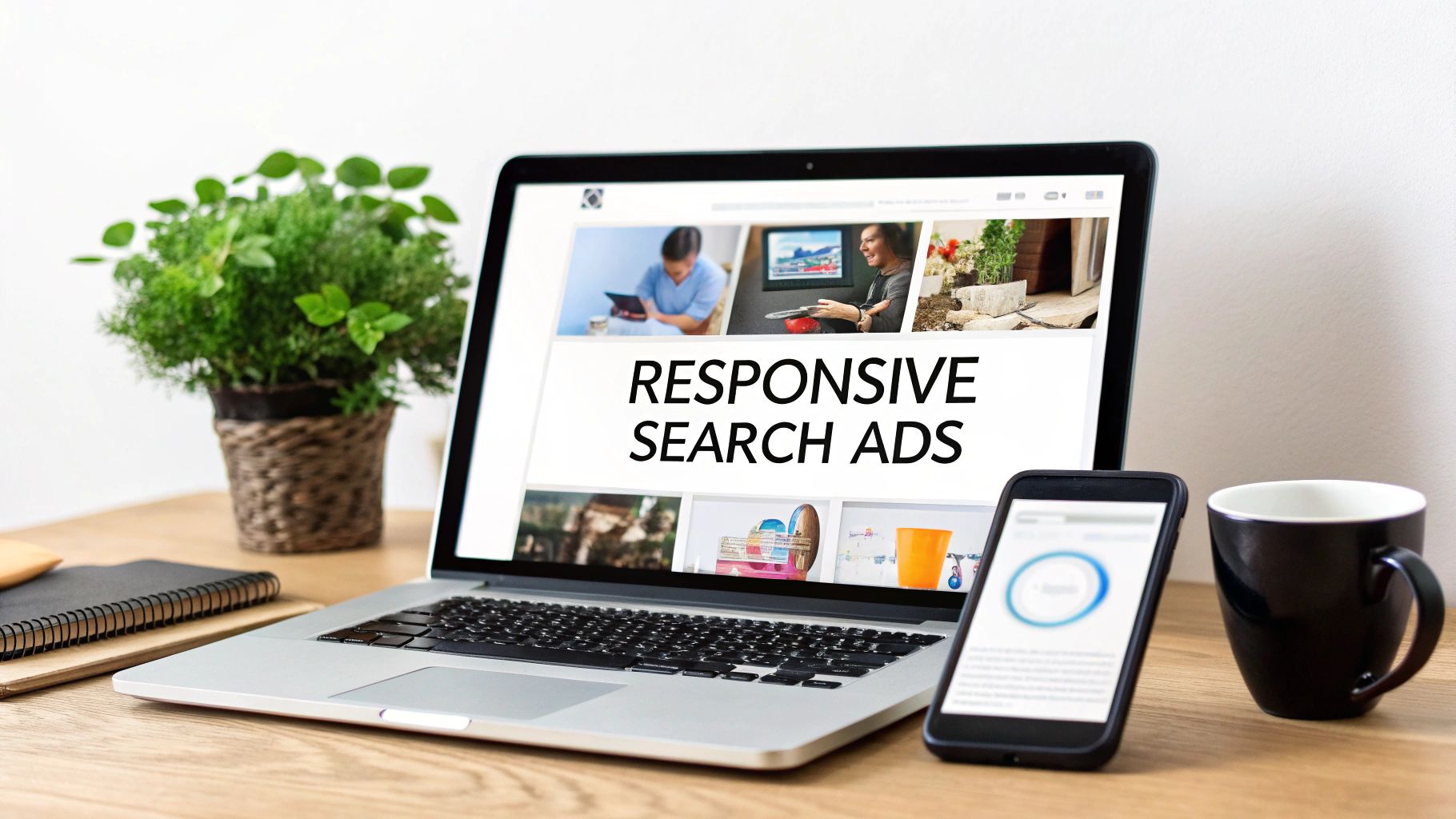
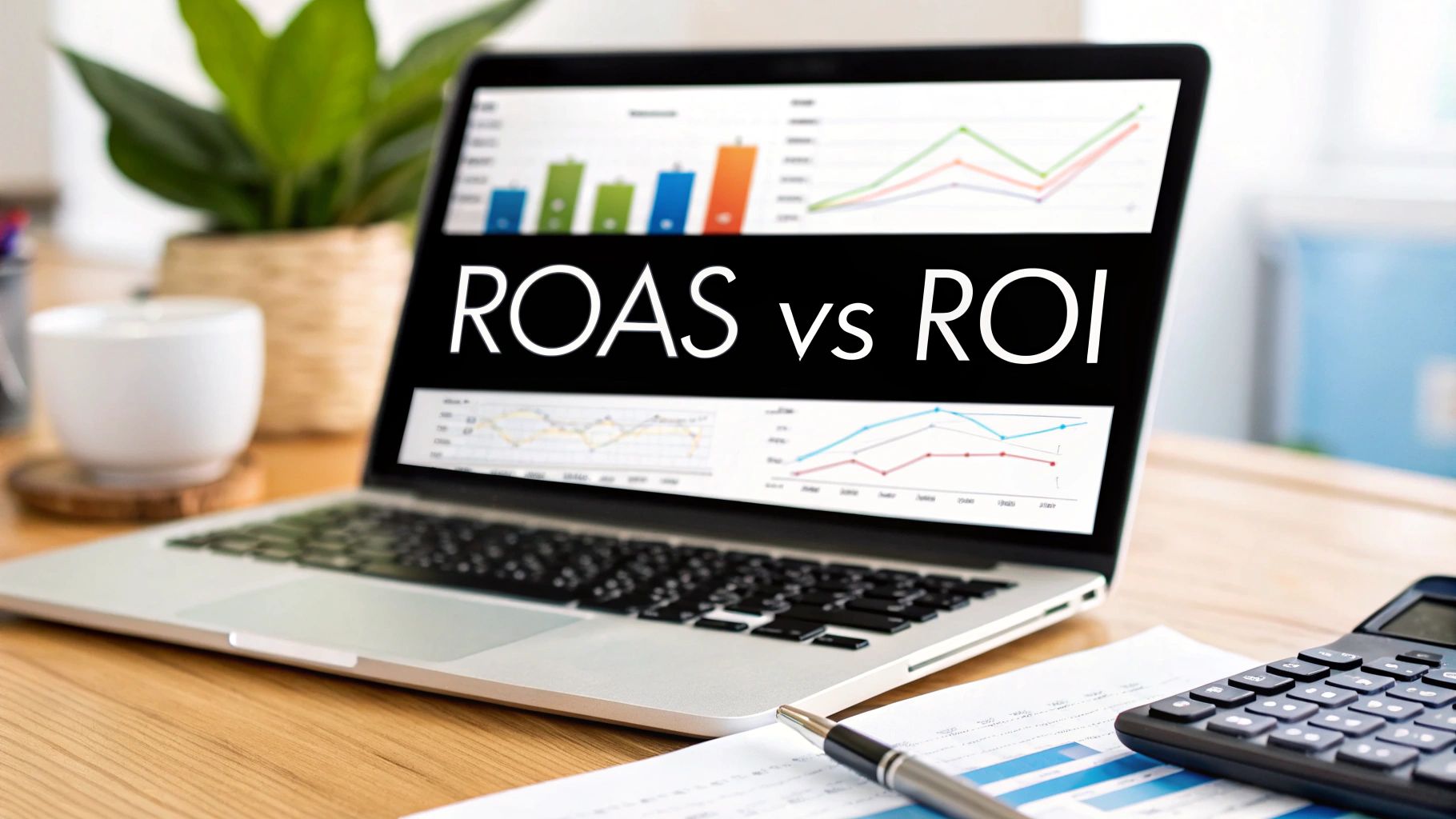
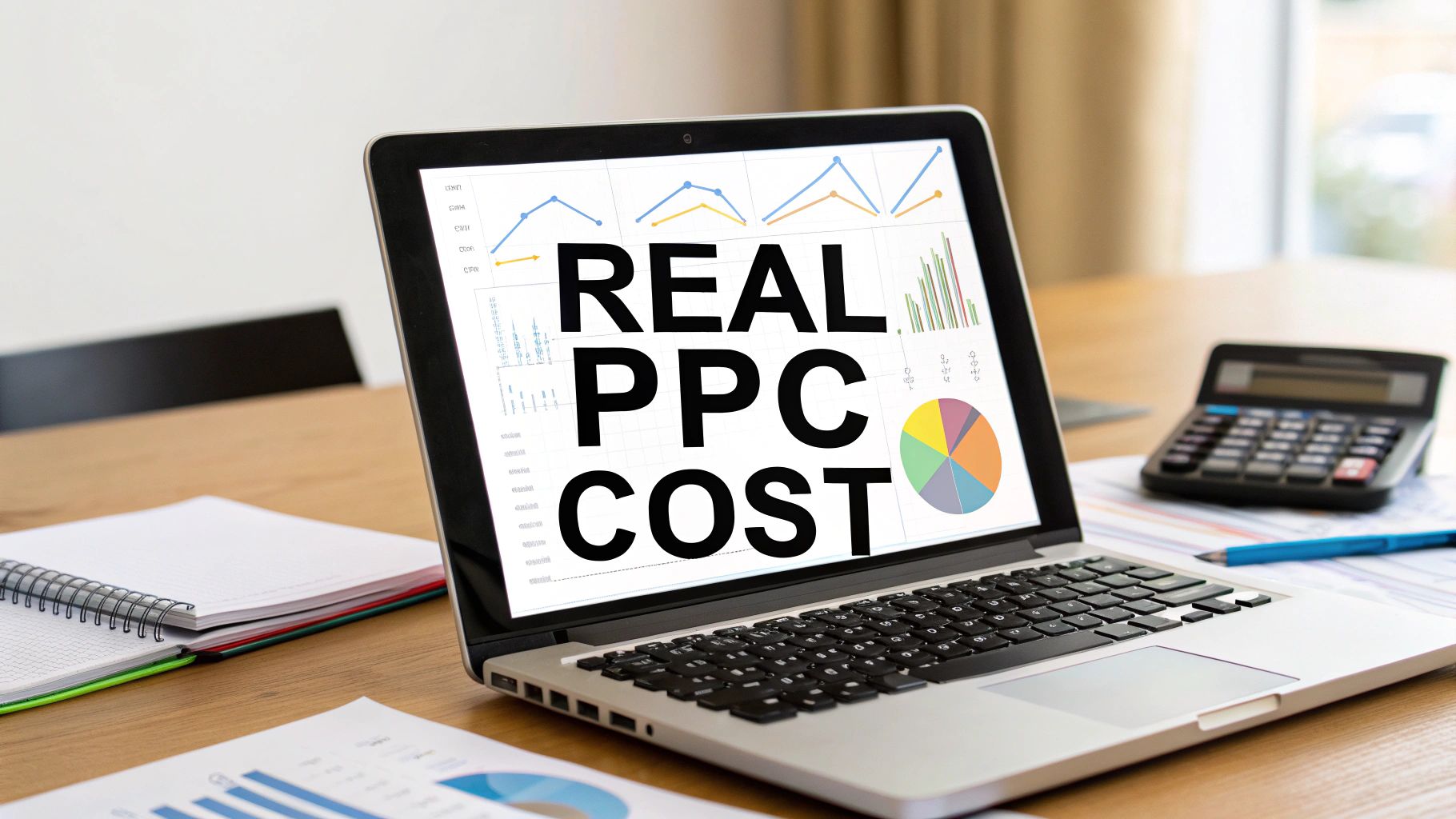
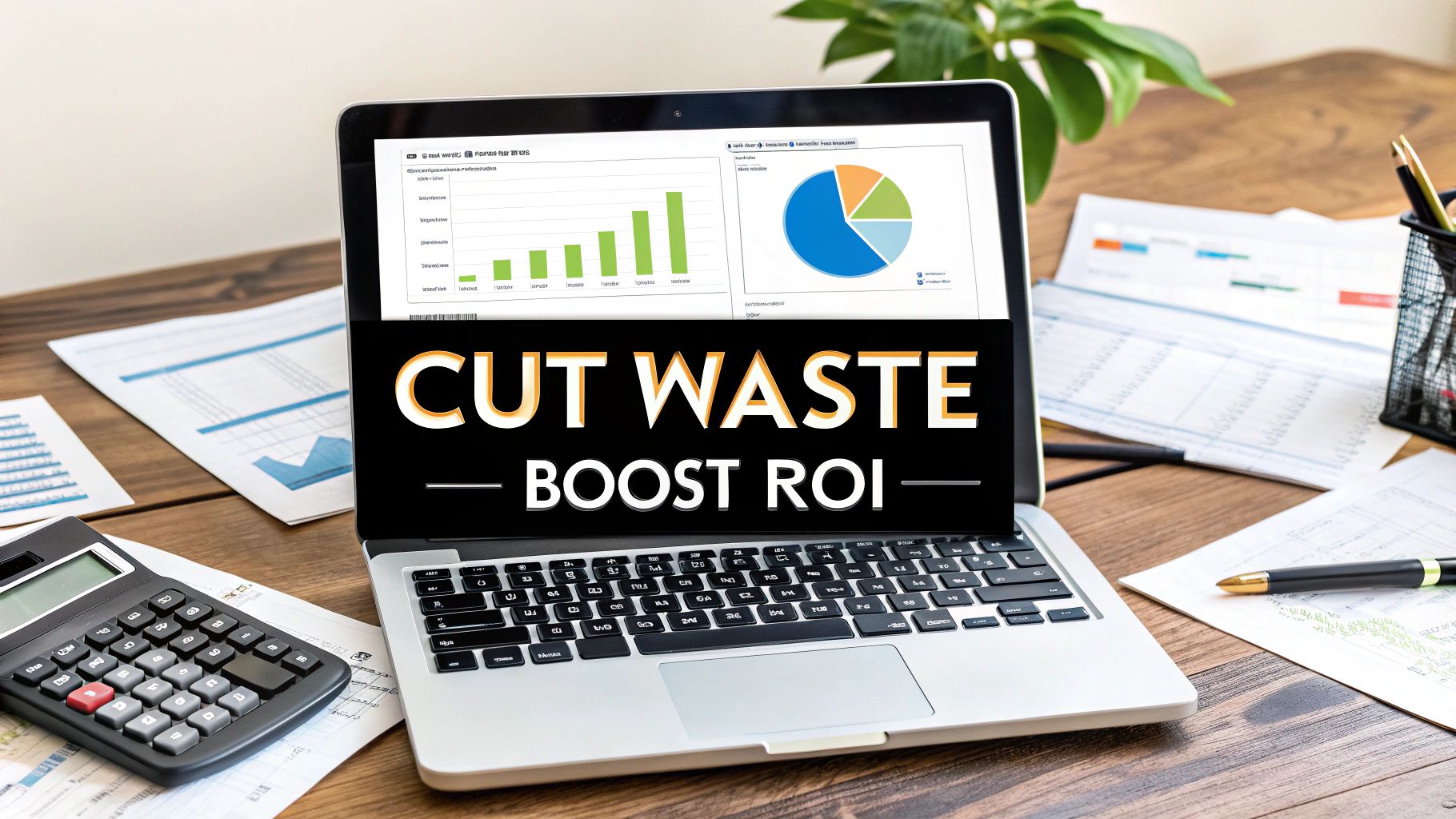
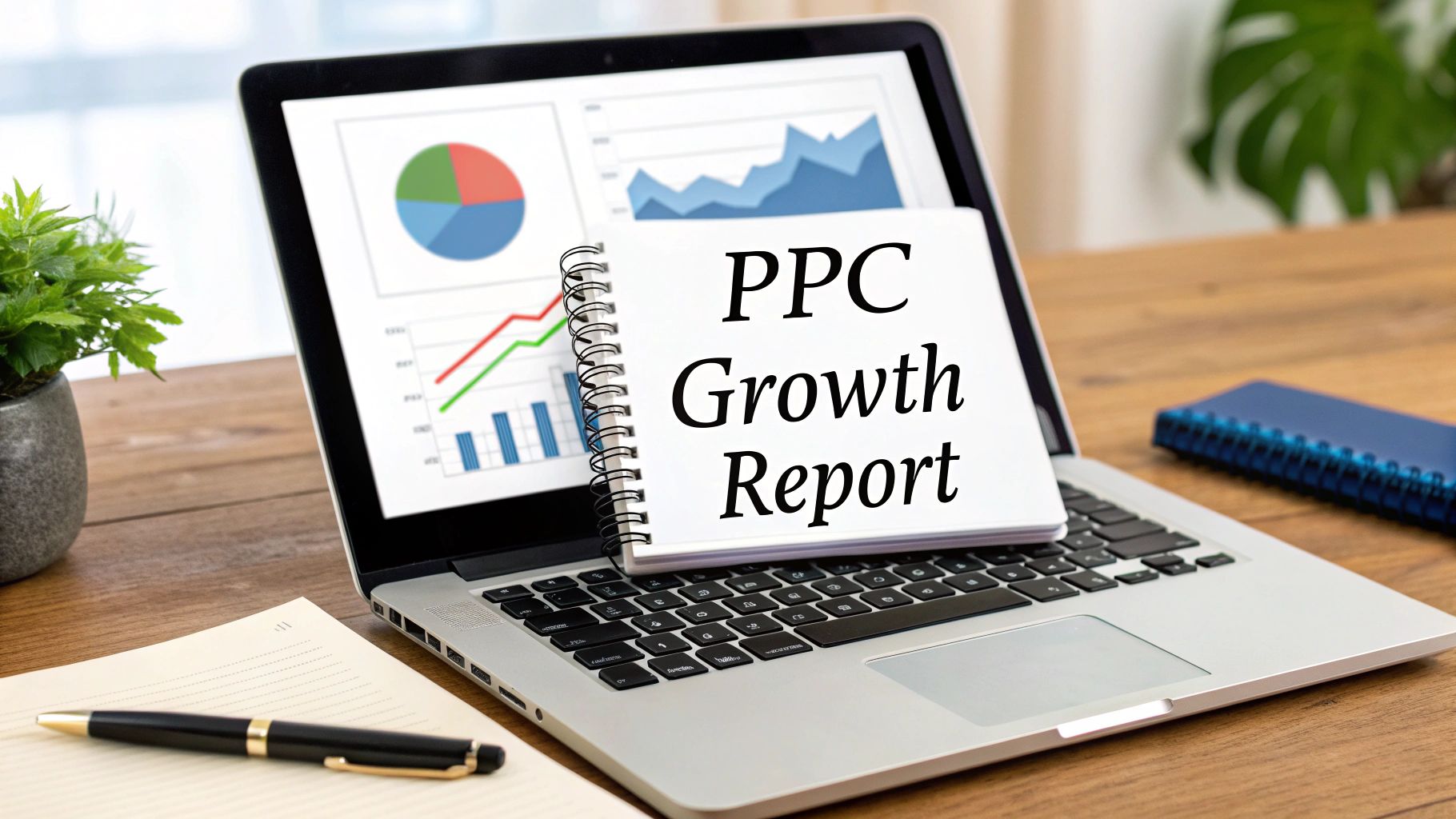
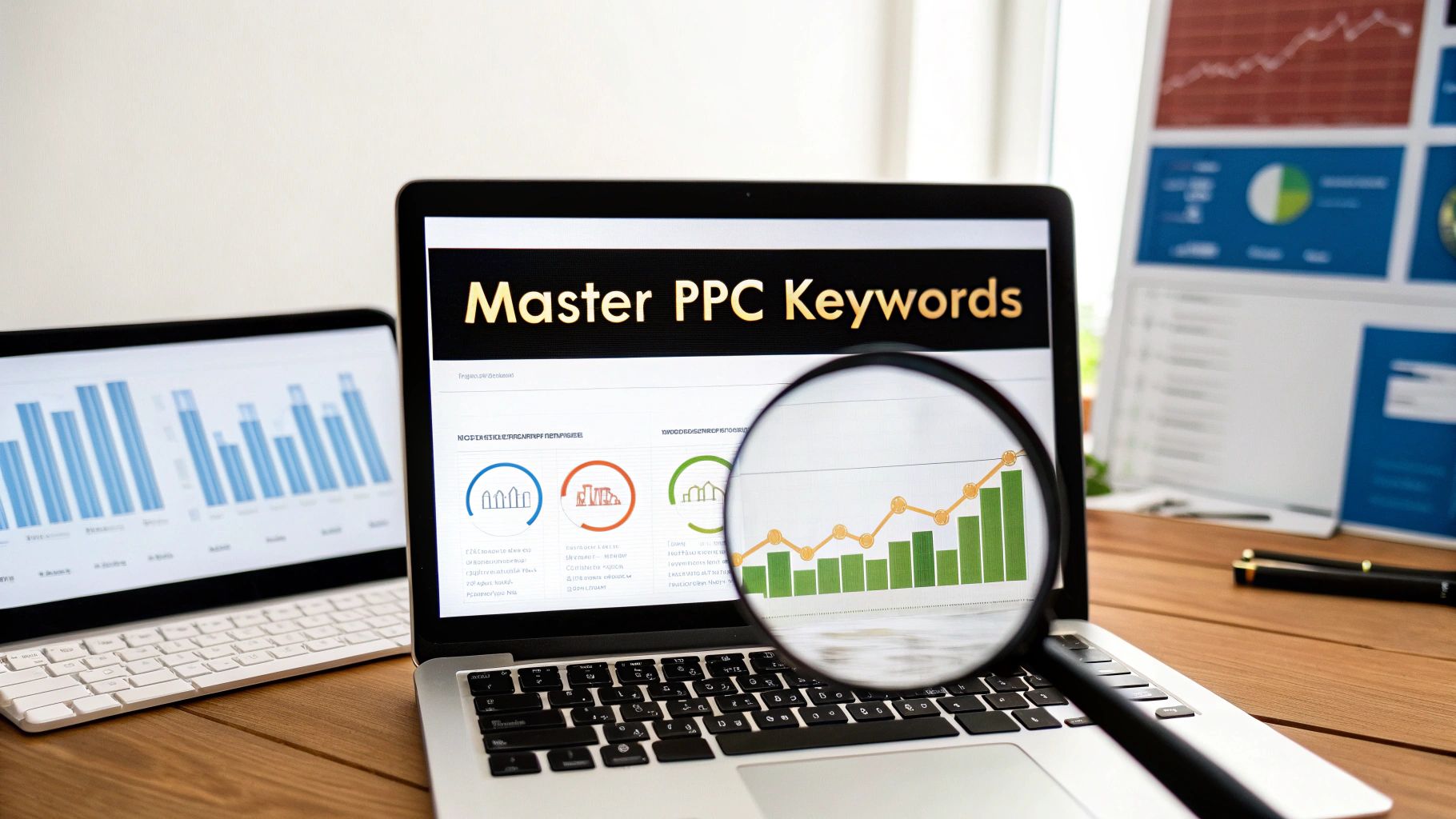
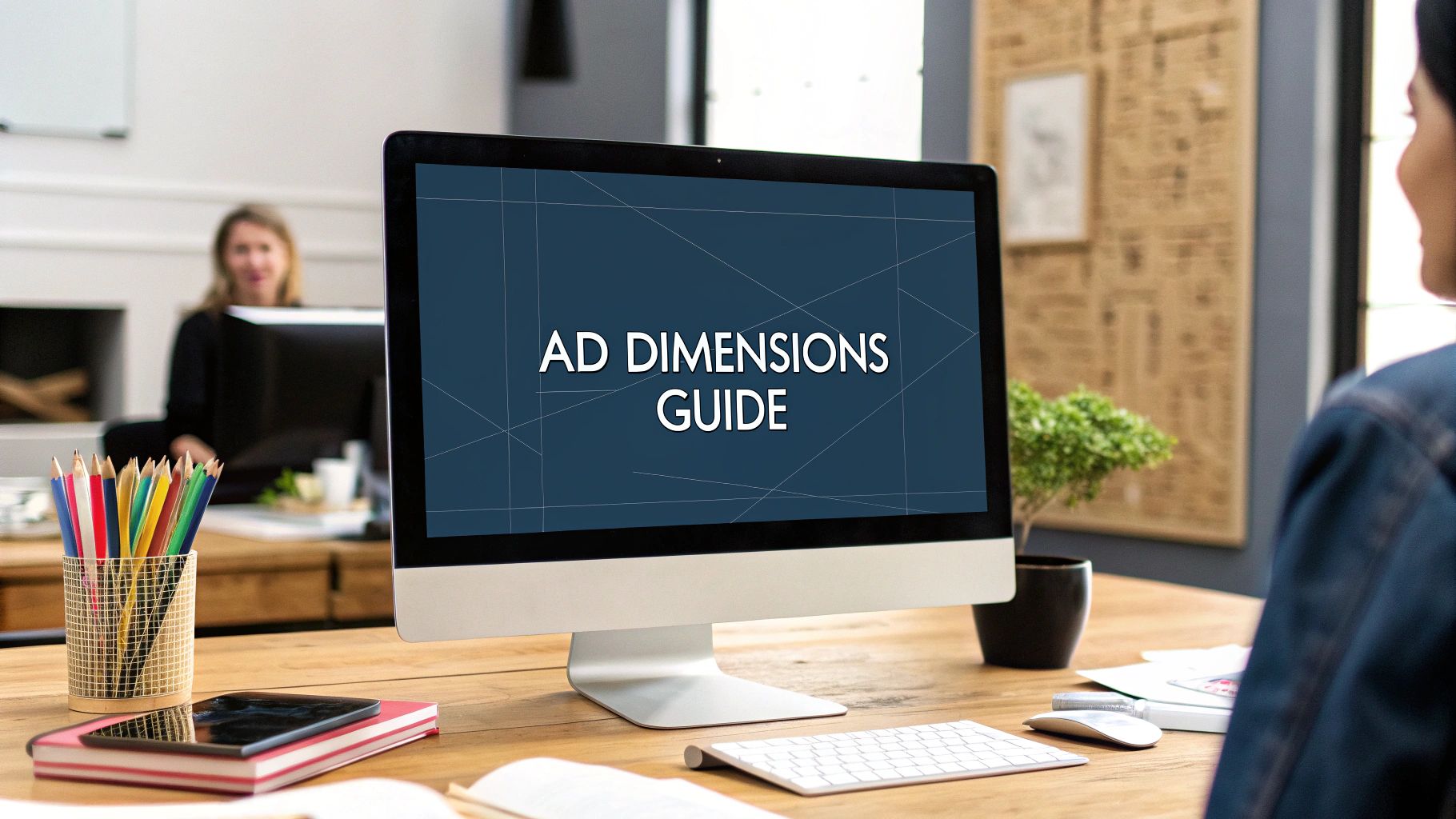
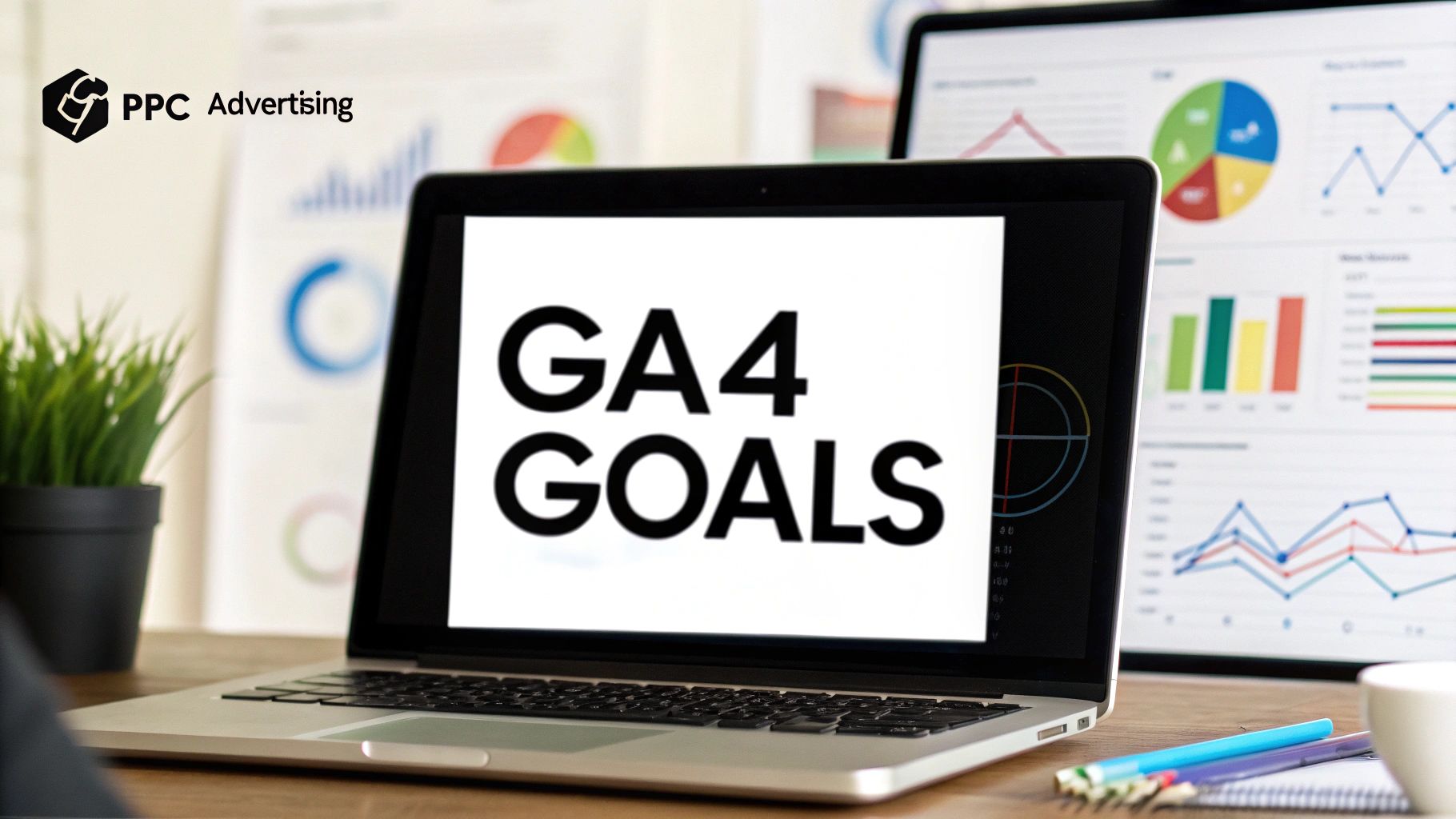
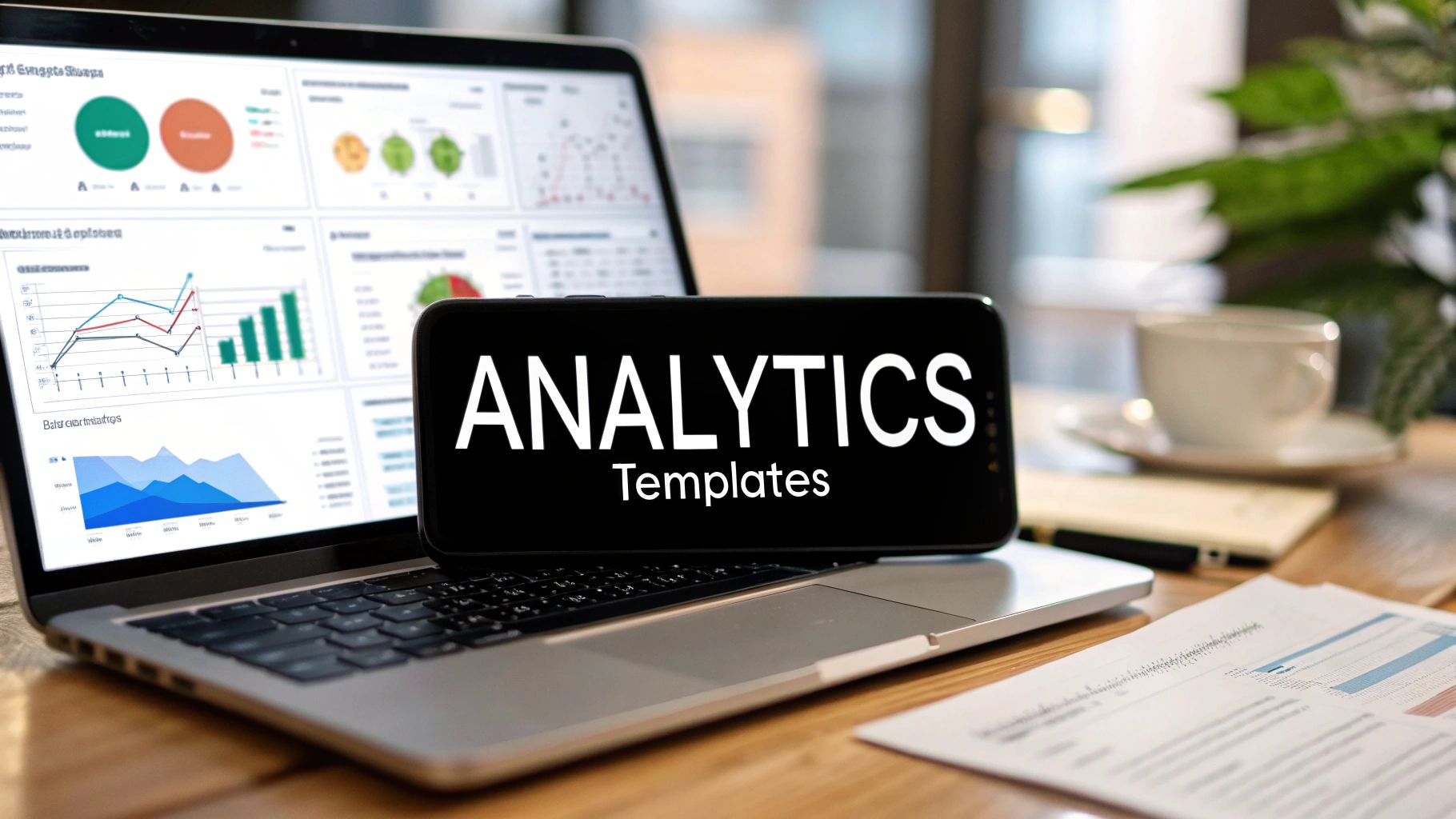
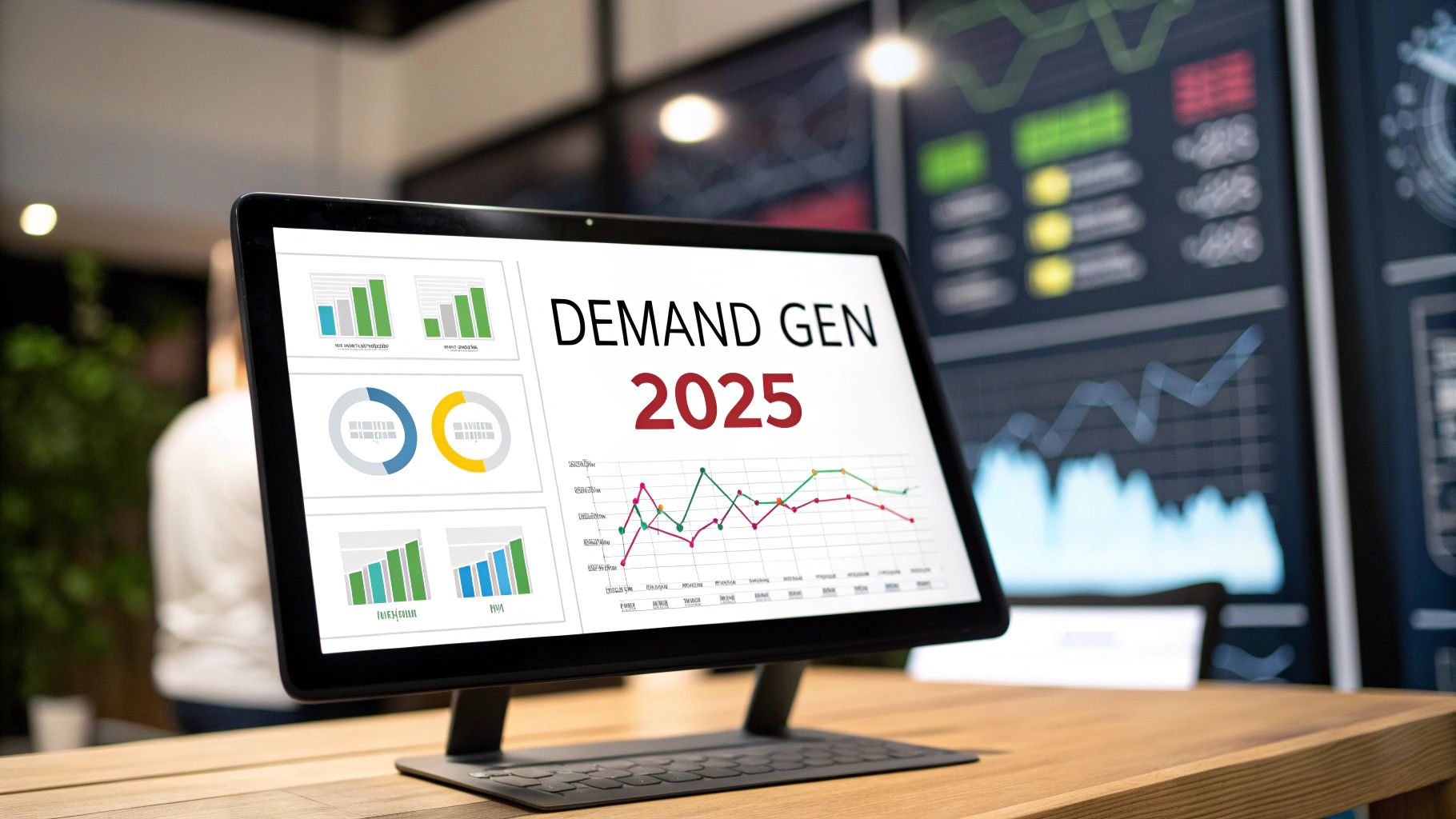
Comments